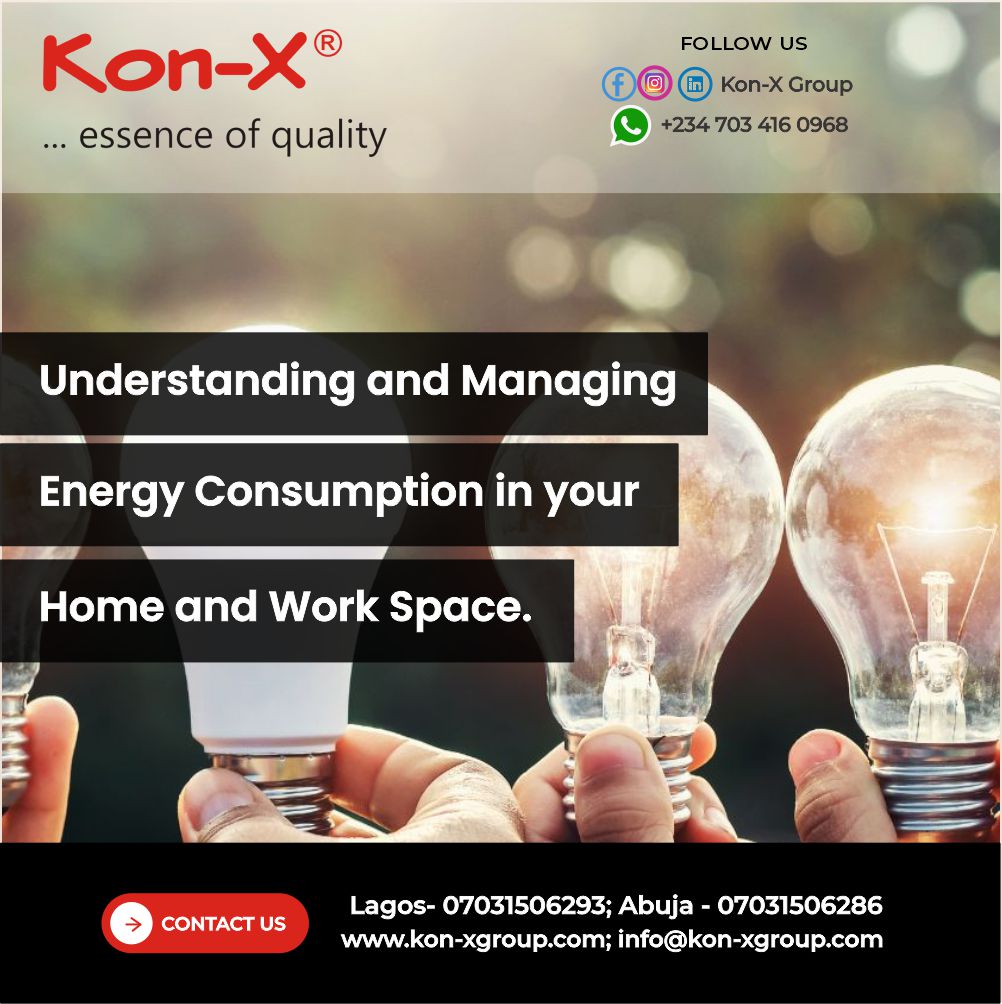Depleting natural resources and the huge financial cost of energy are more reasons we should understand energy consumption and be frugal about energy use around our living and workspaces.
With the increasing awareness of climate change and the need to reduce carbon footprints, individuals and organizations continue to seek ways to optimize energy usage. This article explores the need to understand energy consumption and provides practical strategies for the efficient use of energy in homes and offices.
UNDERSTANDING ENERGY CONSUMPTION
By delving into the intricate details of energy usage, we can uncover opportunities for improvement and make informed decisions to reduce our carbon footprint. Identifying the major contributors to energy consumption allows for targeted strategies to optimize usage and reduce waste. Studies conducted on households provide valuable insights into the various factors influencing energy consumption, ranging from building characteristics to socio-demographic variables and appliance ownership. This holistic understanding allows us to identify areas where energy efficiency can be enhanced, whether through upgrading appliances, implementing behavioral changes, or improving building design.
STRATEGIES FOR MANAGING ENERGY CONSUMPTION
- Conduct An Energy Audit:
Conducting an energy audit would provide valuable insights into current consumption patterns and areas for improvement. Professional auditors or online tools can analyze energy usage and identify inefficiencies.
- Install Energy – Efficient Appliances and Equipment:
Opt for energy-efficient appliances and office equipment. These will significantly reduce energy consumption and provide greater efficiency. While shopping, look out for appliances with ENERGY STAR ratings, which indicate high energy efficiency standards.
- Lighting Optimization:
Switching to LED bulbs, utilizing natural light when and where possible, and installing motion and presence sensors or timers for light fitting can reduce electricity usage significantly. Lights could also be turned off during periods when spaces are not in use.
- HVAC Maintenance and Upgrades:
Regular maintenance of heating, ventilation, and air conditioning (HVAC) systems ensures optimal performance. Upgrading to energy-efficient HVAC systems, programmable thermostats, and proper insulation can further reduce energy consumption.
- Power Management for Electronics:
Encourage the use of power strips to switch off multiple devices when not in use easily. Enabling power-saving modes on computers and other electronic devices would minimize energy consumption during idle periods.
- Behavioral Changes:
Promoting energy-conscious behavior among occupants through education and incentives can significantly reduce energy usage. Simple actions such as unplugging chargers, using energy-efficient settings on appliances, and adjusting thermostat settings can make a difference.
- Integrate Renewable Energy:
Consider incorporating renewable energy sources such as solar panels or wind turbines to supplement energy needs. These investments do not only reduce reliance on fossil fuels but also offer long-term cost savings.
- Water Conservation Measures:
Implement water-saving fixtures such as low-flow faucets, toilets, and showerheads to reduce water consumption in both homes and offices. Fix leaks promptly and properly to help conserve water and energy.
- Building Orientation and Designs:
Orientate buildings to efficiently harness the benefits of natural light and breeze. This reduces energy consumption on illumination and cooling.
Design considerations in the use of sustainable materials for optimal energy performance, open plan spaces, proper window sizing and treatments to control heat gain and loss, etc would significantly influence energy consumption and cost.
BENEFITS OF MANAGING ENERGY CONSUMPTION
Efficient energy management offers numerous benefits for both individuals and organizations.
- Cost Savings:
By reducing energy consumption, households and businesses can lower utility bills and operational expenses.
- Environmental Impact:
Decreased energy usage translates to reduced greenhouse gas emissions and carbon footprint, contributing to sustainability efforts.
- Improved Comfort and Productivity:
Optimized heating, cooling, and lighting systems create more comfortable indoor environments and enhance productivity and well-being. - Regulatory Compliance:
Adhering to energy efficiency standards and regulations ensures compliance with environmental laws and may qualify for incentives or tax benefits.
Grasping the nuances of energy wastage empowers individuals and communities to take proactive steps toward a greener future. From simple actions like turning off lights when not in use to investing in energy-efficient appliances and renewable energy sources, there are countless ways to make a positive impact. By raising awareness and providing education on energy conservation, we can foster a culture of sustainability that benefits both the environment and future generations. In essence, understanding energy consumption is not just about managing resources—it is about creating a more sustainable and equitable world for all.




